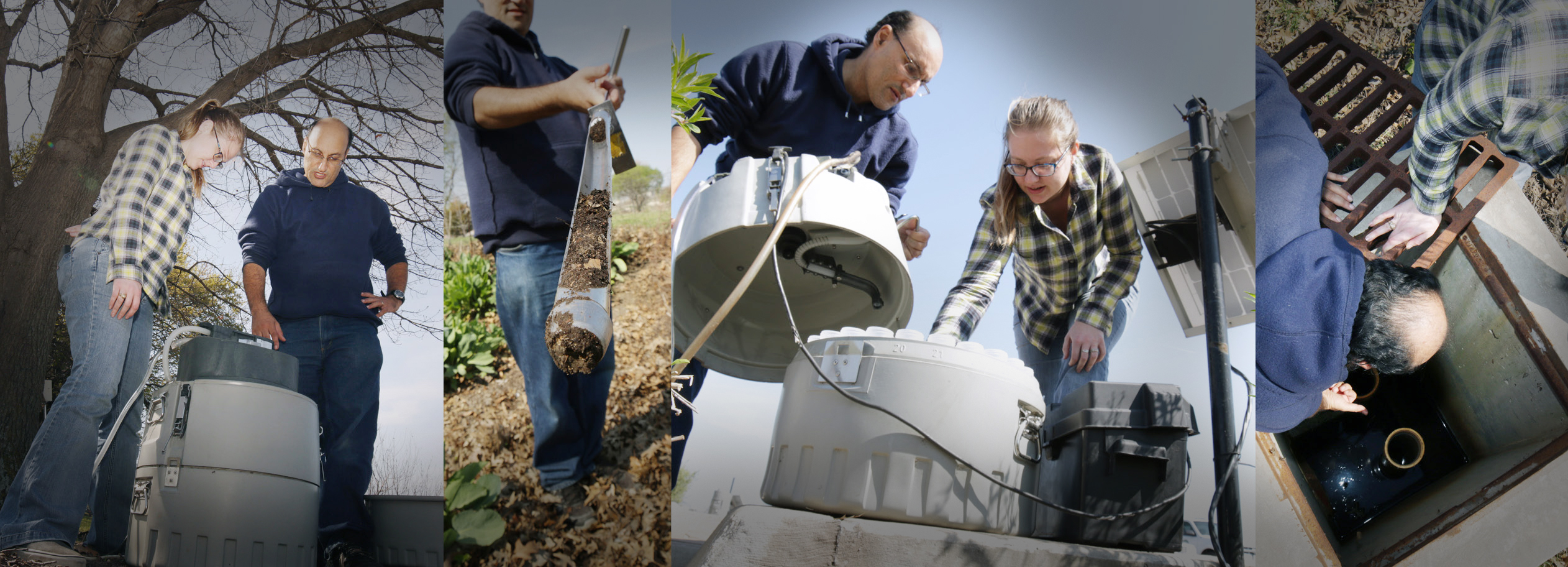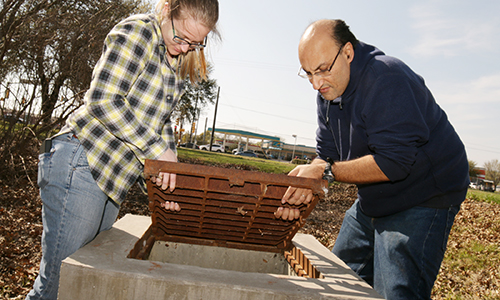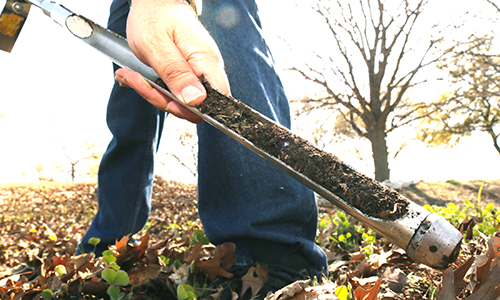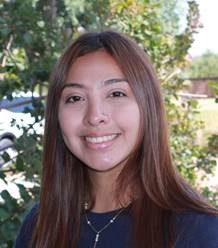
Urban Ecological Engineering
Innovative approaches to water quantity and quality issues to reduce the impact of urbanization on nature
Background
Cities face a slew of environmental and ecological problems as urban populations spike across the globe. Addressing water quantity and quality issues the “usual way” has resulted in severe impairment of water bodies and other ecological disturbances: increased waste, increased need for energy, increased need for land for food, increased CO2 production, disruption to wildlife corridors. Our ecological engineering program provides solutions that mimic natural systems to address these issues and reduce the impact of urbanization on nature.
Vision
The scope of the program is to research and educate ecological applications to solve engineering problems related to water resources. We focus on assessing the quality and efficiency of green infrastructure for stormwater management, urban water conservation, natural stream restoration, rainwater harvesting, and alternative water sources such as graywater and A/C condensate.
Mission
The goal of the program is to provide research based assessment of various ecological engineering practices through field experimentation and modeling. We aim to disseminate sound design, construction, and maintenance information about these practices through workshops and cooperative collaboration with engineers, landscape architects, planners, the general public, and municipal entities. The wide adoption of these practices in Texas cities and beyond is the ultimate aim of this program.
Program Areas
Stormwater Management

One of the most negative environmental impacts resulting from urbanization is the pollution to our waters and the erosion of our streams as a result of increased urban stormwater. Stormwater management is especially important in cities, where increased urbanization leads to increased impermeable surfaces — those hard surfaces through which stormwater cannot penetrate. Our ongoing education program on low impact development (LID) stormwater management teaches cities, consulting firms, Master Naturalists, and Master Gardener chapters how to deal with stormwater in an environmentally friendly way. These innovative offerings have resulted in the construction of some of the first LID practices in Texas.
A session of this initiative can consist of either a one-hour lecture or a six-hour workshop consisting of a seminar and hands-on construction on stormwater control measures (e.g. bioretention area, rainwater harvesting system). The workshops have resulted in the construction of several rain gardens (bioretention areas) in Texas. Our research shows that these rain gardens are estimated to reduce runoff, nitrate, phosphate, total suspended solids and heavy metals loads at rates of 90%, 80%, 65%, 90% and 95% respectively. A rainwater harvesting system, green roof demonstration, permeable pavement parking lot, and rain garden have been constructed at the Texas A&M AgriLife Research and Extension Center at Dallas to evaluate the performance and provide examples of LID stormwater management to visitors throughout the year.
Stream Restoration

Stream erosion presents a major issue to water quality planners in north Texas and throughout the state. The deposition of erosion-based sediments represents a significant threat to the storage capacity and water quality of reservoirs. Additionally, stream erosion threatens land-use, property values, and human safety. Traditional approaches to repairing degraded stream segments rely heavily on hardscapes such as concrete, gabions, and rip rap. While these methods work effectively to mitigate the loss of stream bank in the immediate area of installation, they do not account for the upstream and downstream impacts to this modification of stream hydrology. Moreover, traditional hardscape techniques fail to account for the preservation of stream habitat.
As an attempt to shift attitudes toward stream repair, an educational program focused on the emerging discipline of natural stream design was developed. Natural design works to maintain or restore the primary stream functions of water transport, sediment transport, and wildlife habitat though the use of selected vegetation and engineered placement of existing riparian features such as rocks or fallen timber.
Our Stream Restoration Program began in 2009 and has been regularly requested by cities (e.g. Arlington, Fort Worth, Waco, and McKinney), counties (including Tarrant County and Dallas County), the Upper Trinity Water Management District, and consulting engineering firms (Kimley-Horn and Freese and Nichols). A three-day advanced workshop was later developed and has been offered several times to-date The workshops featured lecturers from the US Army Corps of Engineers, USDA-NRCS, and the EPA.
Water Conservation

The Ecological Engineering program has developed an alternative water reuse education program, which covers collection and treatment of harvested rainwater, greywater and/or A/C condensate for home consumption. This education initiative was spurred by a grant from the Qatar National Research Foundation to investigate potential reuse of residential greywater and A/C condensate,
A computer model is now under development that will be able to calculate an end user’s level of greywater treatment based on their initial greywater quality and their intended use of the treated water. Another model will be able to calculate the A/C condensate volume that can be collected from a housing unit to help developers design for storage capacity.
Urban Ecology Team

Dr. Fouad Jaber
Principal Investigator, Professor & Extension Agricultural Engineering Specialist
Texas A&M AgriLife Research & Extension
[email protected]
972.952.9672
Publications
Find a comprehensive listing of Dr. Fouad Jaber’s publications at Google Scholar

Yufan Zhang
Postdoctoral Extension Associate
Texas A&M AgriLife Extension
[email protected]

Marianna Zamora
Extension Assistant
Texas A&M AgriLife Extension
[email protected]

Yarden Reynolds
Intern Volunteer
Texas A&M AgriLife Extension
